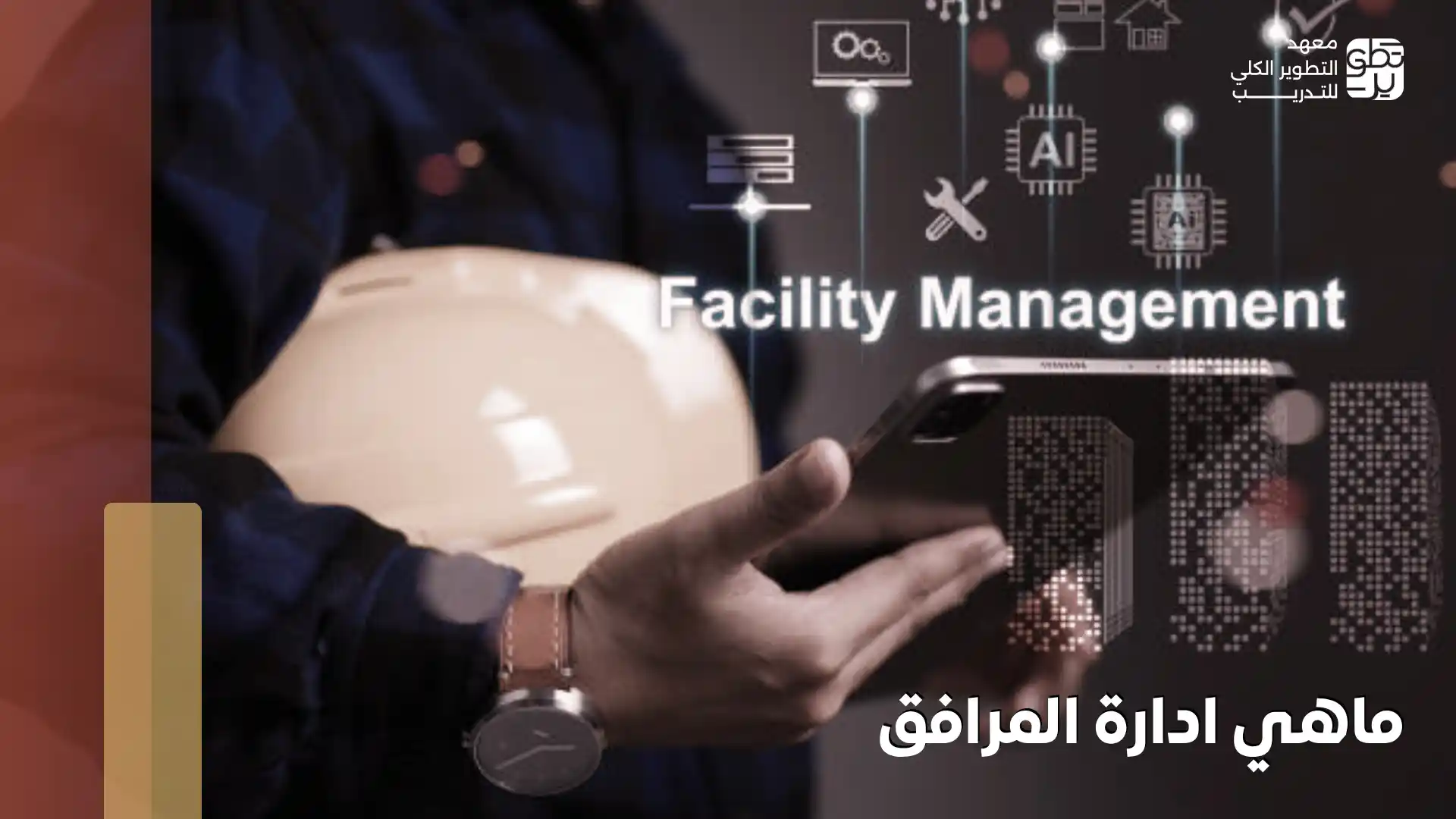You might sometimes be surprised when you see younger people than you getting higher positions or getting promoted faster, while you have more years of experience. The truth is, the difference isn't in age or the number of years within the company, but in the ability to lead and make decisions at the right times. These skills don’t just come with time but are acquired through training courses for administrative employees, which build a strong scientific foundation for modern management and teach how to manage teams professionally.
Today, this is what we want to talk about as training experts. If you're a company owner, you don’t always have to look for managers from outside your organization, but you can develop your administrative employees' skills and see the fruits of this in the company's performance and your team's loyalty. If you’re an administrative employee aspiring for promotion and don’t have access to training within your company, you can start by yourself and enroll in leadership and management courses that open the path for rapid and confident career advancement.
What Are Training Courses for Administrative Employees?
Training courses for administrative employees are a fundamental tool for enhancing their skills and achieving outstanding performance within the work environment. Through these courses, employees learn various skills such as effective leadership, time management, communication skills, and financial analysis, which help them handle daily challenges more efficiently.
These courses also contribute to increasing productivity and strengthening teamwork, which positively impacts the work environment as a whole. If you want to improve your administrative skills or develop your team, don’t hesitate to register now for our specialized training courses and start improving your performance today!
The Administrative Employee: The Backbone of the Organization
To determine the importance of training, we first need to understand the role of the administrative employee. An administrative employee is defined as the person responsible for the essential organizational tasks necessary to ensure effective workflow and the achievement of the organization's overall goals. Their tasks vary, including:
- Managing files, records, and organizing the institution's archive.
- Organizing meetings, appointments, and coordinating between departments.
- Communicating with clients and leadership and providing necessary administrative support.
- Preparing reports, tracking inventory, and handling basic accounts.
To perform these tasks excellently, the employee must possess organizational skills, effective verbal and written communication, time management, technical skills in using computer programs, problem-solving abilities, and teamwork.
Therefore, providing this employee with training courses for administrative employees is a guarantee for the stability of daily operations, especially when enrolling in the most important training courses for employees, which enhance their abilities and professional development.
The Most In-Demand Training Courses for Administrative Employees
To elevate the level of administrative performance, administrative employees need to enroll in specialized courses considered essential in the modern workplace. The top 8 indispensable administrative courses include:
- Project Management Courses: Learn the basics of planning, budgeting, practical application, project management tools and techniques, and how to handle potential risks.
- Business Analysis Courses: Help beginners and professionals understand the basics of gathering information, analyzing data, and how to identify stakeholders' needs and develop business analysis strategies.
- Human Resources Courses: Focus on training in operational processes, recruitment, compensation, designing and implementing training programs, and developing long-term workforce strategies.
- Quality Management Courses: Focus on the principles of quality application and process improvement, delivering the best customer services efficiently without wasting time.
- Change Management Courses: Aimed at providing leaders and employees with a comprehensive understanding of organizational change types and methodologies for adapting to the changes occurring in business environments.
- Business Transformation Course: Essential for leading transformation in various business areas of the organization, teaching Agile principles (Agile) for effectively responding to changes.
- Supply Chain, Production, and Logistics Services Course: Equip trainees with the skills required to manage global supply chain activities, improve processes, and manage risks.
- Principles of Management and Leadership Course: Focuses on developing the management skills of new managers and supervisors and teaching practical skills that can be immediately applied in the workplace.
These courses offer training courses for administrative employees a comprehensive view of the work environment and its challenges.
Benefits of Training Courses for Administrative Employees
The benefits of training courses for administrative employees directly reflect on the quality of work, operational efficiency, and employee loyalty.
- When administrative employees receive the right training, they can perform their tasks more efficiently. Training equips them with the knowledge and tools needed to address problems and make the right decisions, reducing the time spent completing tasks.
- Training courses for administrative employees help them acquire new skills or refine existing ones.
- Increase employee satisfaction and motivation.
- Training courses for administrative employees act as a bridge to promotion. An employee who possesses up-to-date skills and can keep up with changes in their field is more qualified for leadership positions or job promotions.
- Effective training contributes to reducing routine operational errors.
- Employees trained in effective communication skills are better able to interact with their colleagues, creating harmony and a positive, productive work environment.
- Training provides employees with the skills needed to analyze data and identify trends, improving their decision-making abilities.
The benefits of training courses for employees manifest in the overall performance of the organization, increased productivity, and achieving organizational goals more quickly and accurately.
Best Methods for Training Administrative Employees
Training administrative staff requires modern methods that are flexible and highly efficient to ensure that the knowledge gained is transformed into practical skills that can be immediately applied to support organizational performance. To maximize the benefit of training courses for administrative employees, the following methodologies are preferred:
| Methodology | |
|---|---|
| Blended Learning |
Implementation: A combination of digital resources (interactive e-courses) to teach technical skills and systems, alongside in-person workshops to enhance personal skills like negotiation and effective communication. Administrative Benefit: This blend offers the flexibility needed to complete technical tasks according to the employee's schedule and ensures the depth required to develop leadership skills in an interactive environment. |
| Experiential Learning Based on Simulation |
Implementation: Using complex case studies and scenarios that mirror actual challenges faced by the company (e.g., crisis management or financial decision-making). Administrative Benefit: This approach allows administrators to practice their analysis and decision-making skills in a risk-free environment, reinforcing learning and making it immediately applicable to real-world tasks. |
| Microlearning & Just-in-Time Learning |
Implementation: Creating a library of very short learning units (videos or texts under 5 minutes), which can be accessed anytime via mobile devices. Administrative Benefit: This method is ideal for busy employees, enabling them to review specific procedures or updates "on-demand" when needed, thus supporting efficiency without disrupting workflow. |
| Coaching and Mentoring Programs |
Implementation: Establishing mentoring partnerships between high-potential administrative employees and senior leaders or executives in the company. Administrative Benefit: Ensures the transfer of practical experience, aids in developing future leadership competencies, and provides continuous, personalized feedback tailored to each employee's career path. |
By adopting these personalized and flexible methodologies, companies can ensure that training courses for administrative employees are a real investment, raising overall productivity levels and ensuring the sustainability of operations.
How to Choose Training Courses for Administrative Employees
Selecting the right training courses for administrative employees must be an organized process to ensure maximum benefit and return on investment. This process depends on a precise balance between the organization’s needs and the individual employee's goals.
First: Comprehensive Training Needs Analysis
Before selecting any course, the current and future skill gaps should be identified:
- Identifying skill gaps (Gap Analysis): Compare employees' current skills with the required skills.
- Use performance evaluations, one-on-one interviews with managers and employees, and daily performance observations.
Aligning strategic goals: The training courses should serve the organization’s strategic goals, especially concerning Saudi Arabia’s Vision 2030 and digital transformation. - Identifying future skills required: Don't only focus on closing current gaps but also prepare employees for their future tasks.
Second: Criteria for Selecting Courses and Content
Once the need is identified, courses are chosen based on the quality of their content and their relevance to the administrative employee:
- Focus on basic administrative skills: Ensure courses cover:
- Project management and business analysis.
- Leadership and effective supervision skills.
- Time management, prioritization, and problem-solving.
- Communication skills (both written and verbal).
- Accreditation and quality: Ensure the courses and their certificates are accredited by reliable official entities, such as the Technical and Vocational Training Corporation (TVTC) in Saudi Arabia, ensuring they are recognized, like the MDIT. For specialized fields, look for international professional certifications (like PMP for project management).
- Practical and application-based: The content should focus on case studies and practical exercises more than pure theoretical aspects to ensure that employees can apply what they’ve learned immediately in the workplace.
Third: Evaluating the Service Provider (Training Provider)
A training partner with credibility and experience in training administrative staff should be selected:
- Trainer expertise: Ensure that trainers are not just academics but also have practical experience in management and business.
- Track Record: Review the provider’s past work in training similar companies and institutions, as well as feedback from previous clients.
- Flexibility of training methods: The institute should offer various types of courses suited to the nature of the administrative employee's work (e.g., in-person, online training).
- Customization service: The ideal partner is one who can tailor the course content to fit your company's organizational culture and specific challenges.
These criteria apply to the MDIT, which is the best accredited partner you can rely on to train your administrative employees.
Names of Training Courses for Employees in Leadership and Executive Positions
As an administrative employee advances in their career, their need for training courses for administrative employees with a leadership and strategic focus increases. Here are the names of training courses for employees:
- Executive Secretary Course: Provides the necessary skills to make their roles effective, such as project management, implementing information systems, and writing complex documents.
- Management Development Course: Targets beginners to teach them different leadership styles, how to integrate new employees, and create a positive work culture.
- Agile Leadership Course: Focuses on how to achieve success by focusing on employee and customer needs and creating space for innovation and creativity.
- Corporate Management Fundamentals Course: Provides an in-depth understanding of large organizations’ characteristics and skills in strategic planning and resource management.
Regardless of the names of training courses for administrative employees, receiving training courses for administrative employees at these levels leads to: improved leadership skills, better decision-making based on data analysis, adapting to continuous change, and increased productivity through time management and enhanced communication.
A Comprehensive Definition of Management Courses and Types of Administrative Training
Management training courses can be classified according to several criteria:
|
By Management Level |
|
|
By Training Method |
|
Investing in training courses for administrative employees is an investment in the future of the entire organization.
The Most Important Training Courses for Administrative Employees from the MDIT
At the MDIT, we recognize the importance of training administrative and leadership staff. Therefore, we offer a specialized set of courses aimed at refining your administrative employees’ skills and qualifying them according to the highest international standards. We provide accredited, targeted training solutions, including:
- Business Analysis Course: To equip your team with data analysis skills and business needs identification.
- PMP Certification Training: To empower them to lead and manage projects successfully and professionally.
- CCMP Change Management Certification Course: To qualify leaders in managing organizational transformations and adapting to changing work environments.
- FMP Facilities Management Certification: To enhance administrative employees’ efficiency in managing assets and facilities.
- CBP-LS Certified Business Professional in Leadership: To develop leadership capabilities that enhance productivity and teamwork.
- Digital Transformation Workshop and Business Support in Projects: To keep up with digital transformation requirements under Vision 2030.
In conclusion, whether you are a company owner seeking to develop your administrative employees through accredited training courses or an administrative employee wanting to enhance your skills without the training opportunity within your company, we are here to help.
You can fill out the registration form for corporate training or the individual training registration form.
Frequently Asked Questions
What are the required courses for promotion?
The required courses for promotion vary by field but generally include leadership skills, time management, effective communication, decision-making, along with technical or administrative courses related to the job.
What are the names of Human Resources courses?
Some of the most notable HR courses include performance management, talent management, job analysis, job evaluation, payroll and benefits management, strategic HR planning, along with global certifications like SHRM and CIPD.
















































